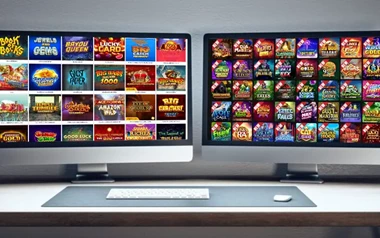Like most industries, gambling has seen unimaginable changes over the last 20 years. Technological innovation, crippling financial events, global pandemics, and regulatory upheavals have left many industries unrecognisable compared to what they were at the turn of the century.
Gambling is no different. It has evolved from a predominantly land-based activity to a multi-billion-dollar global digital ecosystem. From the early days of simple online poker rooms to the current crop of the best gambling sites, technology has completely reshaped gambling.
Land-based to Online Gambling
The most obvious and significant change in gambling over the past 20 years has been the shift from physical casinos to online platforms. Playing casino games previously meant planning a trip to a casino. This may have been locally or to holiday destinations like Las Vegas or Macau. Sports betting meant you had to go to a physical bookmaker, usually on the high street. It was a tactile and social experience, but also limited by location and accessibility.
Enter online casinos.
In the early noughties, online gambling sites started to gain traction. They offered players the opportunity to play roulette, blackjack, and slots from the comfort of home. Online casinos removed the barriers of location and accessibility, opening up the activity to a much wider audience. Any adult with an internet connection could now play casino games.
Initially, people were reluctant to adopt online gambling completely, but that is also true of streaming movies, reading books, and buying clothes. Now look at Bet365, Netflix, Amazon, and Shein. Eventually, as internet speeds improved, payment processing became more secure, and regulations were implemented, people began to view online gambling as a viable option.
Mobile Use
Mobile technology further changed where, when, and how people gambled.
The debut and rapid proliferation of smartphones in the late 2000s marked the dawn of a new era. Smartphone applications made it possible to bet while travelling, waiting, and even while relaxing at home. As the popularity of mobile casino gaming increased, operators began to tailor their releases for mobile. They created interfaces, games, and even promotions specifically for mobile users.
A widespread adoption of HTML5 means that game developers can create games that adapt to all kinds of devices and screen sizes. Before HTML5, developers often used Flash, which was less widely compatible than HTML5. This meant games had to be rebuilt for different platforms. Nowadays, games can intuitively adapt to include touch controls, change resolutions, and work on a variety of operating systems.
When it comes to sports betting, players can also get a user-friendly experience on their portable devices. Mobile sports betting allows for push notifications about odds changes, one-click betting slip additions, and live streaming. Going mobile was also revolutionary for live betting. Players can see events unfold in real time wherever they are and place bets accordingly.

The Future AI, Personalisation and Social Gaming
The Future: AI, Personalisation and Social Gaming
What is next for gambling as technology continues to evolve?
Artificial Intelligence is the big topic at the moment, and gambling operators already employ it. They are using it to detect problem gambling patterns, to offer dynamic odds, and to create predictive betting models. It is also employed to determine when it is most effective to send a push notification or marketing email to different customers. So it is operating behind the scenes, but it remains to be seen whether AI will have a meaningful effect at the point of sale.
Personalisation is another major trend that could appear in gambling platforms. Netflix can recommend shows and films based on your previous viewing habits. Casinos could also employ this technique. Online casinos could tailor their homepage based on your gameplay history, preferred games, and betting style.
Social gaming is already possible, but it will continue to improve alongside technological advances. Chat features, live-streamed games, and live games bring a social element to already existing games. The next level of social gaming could be multiplayer casino games and VR casinos. Virtual reality is impressive, but it is not yet seamless. As VR technology improves, we could see the emergence of fully virtual casinos, where users can interact with other remote players in real time.
Conclusion
Over the past 20 years, technology has radically changed the world and affected the gambling industry. The migration from brick-and-mortar casinos to online casinos was just the first major leap. Mobile technology was the next step, taking accessibility and convenience to a whole new level. Looking ahead, it appears AI will drive the next wave of innovation.
Whether you’re still visiting physical casinos or spinning slots on your phone, it is clear that the way people gamble will continue to evolve. It will be forever shaped by the tools that humanity builds.










